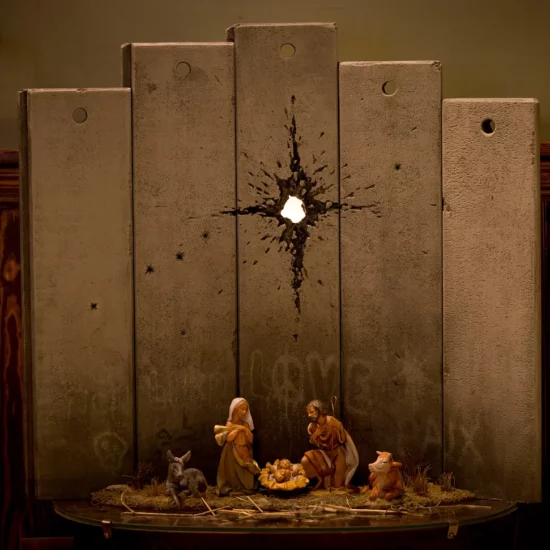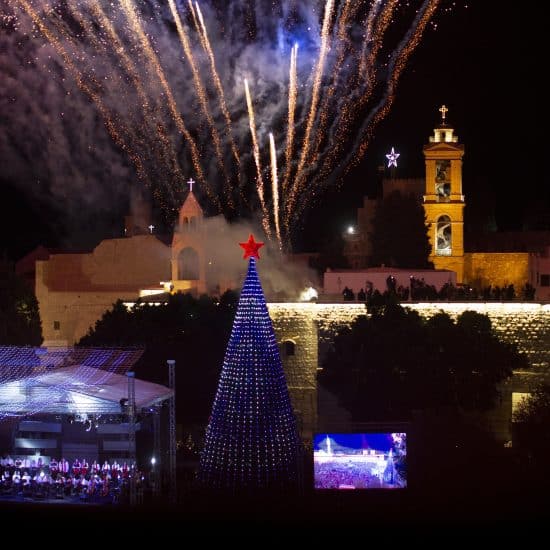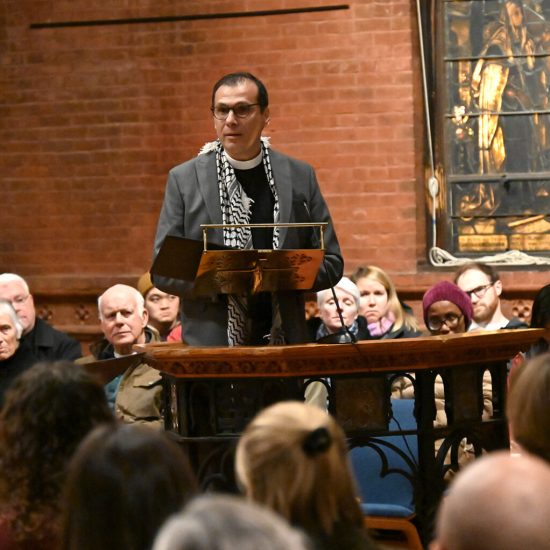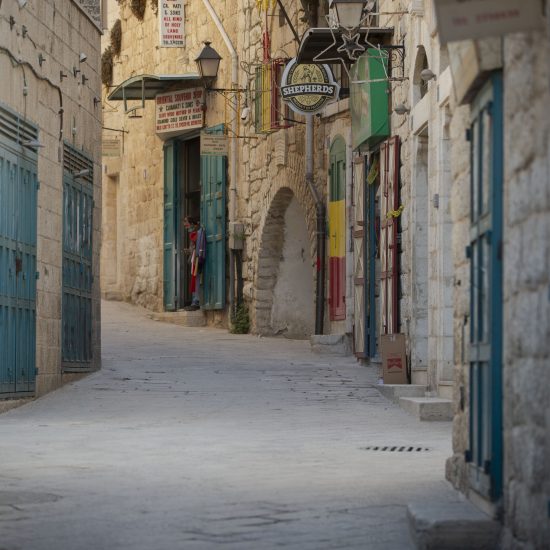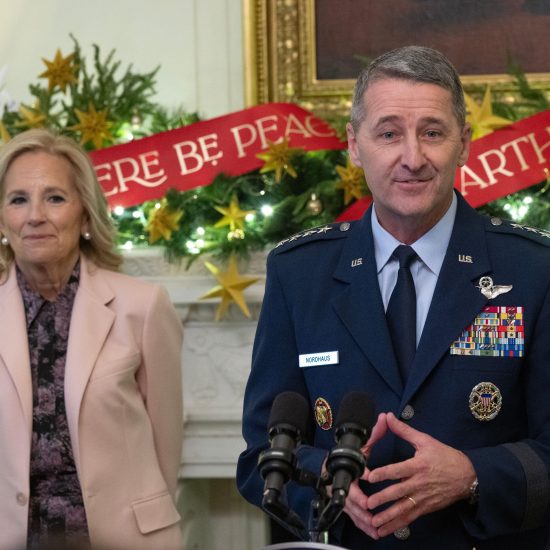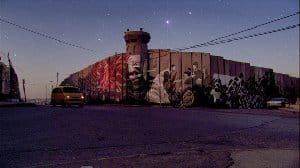
A Nativity scene painted as a mural on the wall that divides Israeli and Palestinian parts of the Bethlehem area. (EGM Films)
|
(ABP) — Serene manger scenes and Magi represent the extent of most American Christians’ understanding of Bethlehem. But EGM Films’ powerful new documentary, Little Town of Bethlehem, tells the story of a Bethlehem that doesn’t lie so still. The movie provides a glimpse into the lives of three remarkable individuals who have committed to non-violence as a way of bringing peace to a troubled land.
These three men — a Palestinian Christian, a Palestinian Muslim, and an Israeli Jew — tell their stories. Instead of using policy or history experts from a particular ideological bent or an all-knowing narrator to guide the audience through the movie, the filmmakers wisely allow all of the narrative and exposition to come from the lives of these three men.
Sami Awad is a Palestinian Christian who directs Bethlehem’s Holy Land Trust. His Christian faith, along with his respect for Gandhi and Martin Luther King, Jr., informs his convictions on non-violence. Throughout the movie, Sami provides powerful interpretations of the Christian message that have been deepened by living where there are daily challenges to that faith.
Ahmad Al’Azzeh is a Palestinian Muslim who has lived his entire life in the impoverished Azzah refugee camp. His commitment to non-violence puts him at odds with many in his own community who blame their desperate situation on failed peace movements in the past. Ahmad faces a personal cost as well. His convictions could have could have dire consequences for his infirm young son. But in spite of the danger to himself and his family, Ahmad continues to teach in the non-violence program at Holy Land Trust.
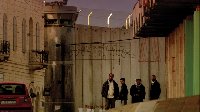
Men near the wall that divides Israeli from Palestinina parts of Bethlehem. (EGM Films)
|
Yonatan Shapira was an Israeli Defense Forces helicopter pilot. After the Second Intifada in 2000, he joined with other pilots who refused to fly sorties that put Palestinian civilians at risk. The courage of his convictions set him at odds with his government and his own family. Yonatan’s father was a well-respected squadron commander in the Israeli Air Force. The obvious pride Yonatan feels for his heroic father stands in conflict with the shame he feels for acts his fellow countrymen have committed.
Each of the men struggles in his own community. Sami reflects on friendships that go back to elementary school. Those same friends have participated in violent acts to have their voices heard. Ahmad reflects on how, typically, “non-violence” in his community is a synonym for “cowardice” and “weakness.” Yet, as a native member of the Azzah community, he speaks with a voice that his neighbors cannot simply dismiss. Yonatan reflects on the irony that it was the principles of the Israeli Defense Force of “defense” and “human dignity” that led him to convictions that put him at odds with those in command of the IDF.
Each man’s story is woven together with stirring sounds and visuals. Images of European Jewish ghettos appear next to Bethlehem’s security fence. The barbed-wire fences of Auschwitz are juxtaposed with barbed-wire security checkpoints in the Bethlehem area. In the movie’s soundtrack, Israeli and Palestinian instruments effectively blend with Memphis blues, underscoring the parallels between the American Civil Rights Movement and struggle for peace in the Middle East (along with scenes from the movement paralleled — stunningly — with modern Middle Eastern scenes). Many of these images flash quickly, presented without interpretation.
No single movie can fully capture the tragedy of a conflict as diverse and historic as the Israeli-Palestinian situation. This movie helps to combat the ignorance that exists in much of American Christian culture about this issue. It provides faces for those who suffer and names for those who struggle.
The filmmakers ask: “Can the cycle of violence be broken?” If more individuals have the courage and hearts of these three wise men, then the world can have hope.
Little Town of Bethlehem, directed by Jim Hanon and produced by Ethnographic Media, 2010. 75 minutes. Rated PG-13. Information about scheduled screenings in North America and elsewhere and information on purchasing the film can be found on the film’s website.
Robert Wallace is a professor of biblical studies at Judson University in Elgin. Ill.
EDITORIAL DISCLAIMER: As part of our mission to provide credible and compelling information about matters of faith, Associated Baptist Press actively seeks a diversity of viewpoints in its columns, commentaries and other opinion-based content. Opinions expressed in these articles are not intended to represent ABP editorial policy and do not necessarily reflect the views of ABP's staff, board of directors or supporters.

